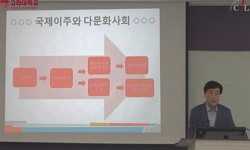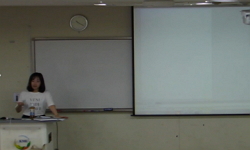우리나라는 급격한 다문화가족 증가에 따라 2006년 다문화가족지원정책을 수립하여 결혼이민자의 안정적인 정착과 그 자녀의 건강한 성장을 위해 맞춤형 지원을 제공하고 있다. 하지만 다문...
http://chineseinput.net/에서 pinyin(병음)방식으로 중국어를 변환할 수 있습니다.
변환된 중국어를 복사하여 사용하시면 됩니다.
- 中文 을 입력하시려면 zhongwen을 입력하시고 space를누르시면됩니다.
- 北京 을 입력하시려면 beijing을 입력하시고 space를 누르시면 됩니다.
다문화가족지원정책 전달체계 개선방안에 관한 연구 : 상호문화주의를 중심으로 = A Study on Improving the Delivery System of Multicultural Family Support Policy : Based on interculturalism
한글로보기부가정보
국문 초록 (Abstract)
분석 결과를 살펴보면, 먼저 적절성 측면에서는 ⌜다문화가족지원법⌟의 적용 대상, 규정 형식, 법적 근거 미비 사항, 관련 법 간의 관계 등과 관련하여 분석하였으며, 다문화가족의 대상 범위 확대, 불법체류자 자녀의 초등학교 입학과 도시·농촌 간의 차별에 대한 법적 근거 마련, ⌜재한외국인 처우 기본법⌟과의 법률 정비가 필요하다는 결론을 내렸다.
두 번째, 통합성 항목에서는 중앙정부와 집행 전담기구로 구분하여 살펴보았는데, 중앙정부 차원에서는 부처 간의 불명확한 역할 분담에 따라 갈등이 이어져 왔으며, 특히 법무부와 여성가족부 간의 명확한 기능 조정이 필요한 것으로 확인되었다. 한편, 집행 전담기구의 경우 2014년부터 건강가정지원센터와 다문화가족지원센터가 통합·운영하기 시작하여 2021년 “가족센터”로 명칭을 변경하여 확대하고 있으나 이에 따른 법적 근거가 없어 이를 신설할 필요가 있는 것으로 밝혀졌다.
세 번째, 예산, 정책성과 등을 통해 지속성 항목을 살펴본 결과, 중앙정부와 안산시·수원시의 투입예산은 매년 증가하고 있지만, 경기도는 2011년에 비해 2022년 투입예산이 현저히 줄어들어 검토해볼 필요가 있다. 또한, 현 정책은 결혼이민자들의 안정적인 정착에 초점이 맞춰져 있으며, 다문화 수용성을 위한 정책은 다문화 이해교육, 세계인의 날 행사와 같은 일회성 행사에 불과했다. 따라서, 다문화 수용성 제고를 위한 중장기적인 정책 개발이 필요하며, 지속적인 만남과 교류가 필요한 것으로 나타났다.
이상 분석 결과, 상호문화주의를 중심으로 관련 법과 부처의 역할, 조직 및 예산의 변화가 필요하며, 적절성, 통합성, 지속성을 실현할 체계적인 전달체계가 필요하다는 결론을 도출해냈다. 하지만 본 연구는 적절성, 통합성, 지속성의 측면에서만 분석하였기에 그 밖의 구성원칙들에 대한 개별적인 접근이 불가하며, 대상이 중앙정부, 경기도, 안산시·수원시에 국한됨에 따라 지방자치단체별 특성에 맞는 개선방안은 제시하지 못하였다.
우리나라는 급격한 다문화가족 증가에 따라 2006년 다문화가족지원정책을 수립하여 결혼이민자의 안정적인 정착과 그 자녀의 건강한 성장을 위해 맞춤형 지원을 제공하고 있다. 하지만 다문화가족지원정책은 유사·중복사업에 따른 예산 낭비, 부처 간 갈등, 체계적이지 못한 시스템으로 비판이 확산되고 있으며, 이에 따른 정책 개선이 요구되고 있다. 따라서 본 연구는 기존의 서비스 전달체계를 파악하여 문제점을 도출해내고, 효율적인 다문화가족 지원을 위한 전달체계를 마련하는데 궁극적인 목적을 두고 있다. 이에 문헌분석, 행정자료 분석, 전문가 의견을 참고하여 중앙정부 및 경기도와 다문화가족이 가장 많이 거주하고 있는 안산시·수원시의 다문화가족지원정책을 살펴보고, 적절성, 통합성, 지속성의 측면에서 어떠한 문제점들을 가지고 있는지 분석하여 개선방안을 제시하고자 한다.
분석 결과를 살펴보면, 먼저 적절성 측면에서는 ⌜다문화가족지원법⌟의 적용 대상, 규정 형식, 법적 근거 미비 사항, 관련 법 간의 관계 등과 관련하여 분석하였으며, 다문화가족의 대상 범위 확대, 불법체류자 자녀의 초등학교 입학과 도시·농촌 간의 차별에 대한 법적 근거 마련, ⌜재한외국인 처우 기본법⌟과의 법률 정비가 필요하다는 결론을 내렸다.
두 번째, 통합성 항목에서는 중앙정부와 집행 전담기구로 구분하여 살펴보았는데, 중앙정부 차원에서는 부처 간의 불명확한 역할 분담에 따라 갈등이 이어져 왔으며, 특히 법무부와 여성가족부 간의 명확한 기능 조정이 필요한 것으로 확인되었다. 한편, 집행 전담기구의 경우 2014년부터 건강가정지원센터와 다문화가족지원센터가 통합·운영하기 시작하여 2021년 “가족센터”로 명칭을 변경하여 확대하고 있으나 이에 따른 법적 근거가 없어 이를 신설할 필요가 있는 것으로 밝혀졌다.
세 번째, 예산, 정책성과 등을 통해 지속성 항목을 살펴본 결과, 중앙정부와 안산시·수원시의 투입예산은 매년 증가하고 있지만, 경기도는 2011년에 비해 2022년 투입예산이 현저히 줄어들어 검토해볼 필요가 있다. 또한, 현 정책은 결혼이민자들의 안정적인 정착에 초점이 맞춰져 있으며, 다문화 수용성을 위한 정책은 다문화 이해교육, 세계인의 날 행사와 같은 일회성 행사에 불과했다. 따라서, 다문화 수용성 제고를 위한 중장기적인 정책 개발이 필요하며, 지속적인 만남과 교류가 필요한 것으로 나타났다.
이상 분석 결과, 상호문화주의를 중심으로 관련 법과 부처의 역할, 조직 및 예산의 변화가 필요하며, 적절성, 통합성, 지속성을 실현할 체계적인 전달체계가 필요하다는 결론을 도출해냈다. 하지만 본 연구는 적절성, 통합성, 지속성의 측면에서만 분석하였기에 그 밖의 구성원칙들에 대한 개별적인 접근이 불가하며, 대상이 중앙정부, 경기도, 안산시·수원시에 국한됨에 따라 지방자치단체별 특성에 맞는 개선방안은 제시하지 못하였다.
다국어 초록 (Multilingual Abstract)
In terms of appropriateness, it was analyzed regarding the application of the ⌜Multicultural Family Support Act⌟, the form of regulations, lack of legal grounds, and the relationship between related laws. It was concluded that it was necessary to expand the target range of multicultural families, prepare legal grounds for elementary school admissions for children of illegal immigrants and discrimination between urban and rural areas, and legal arrangements with the ⌜Basic Act on the Treatment of Foreigners in Korea⌟.
Second, in the category of integration, the central government and the executive body were examined separately. At the central government level, conflicts have continued due to the unclear division of roles between ministries, and in particular, it has been confirmed that clear functional adjustment between the Ministry of Justice and the Ministry of Gender Equality and Family is necessary. Meanwhile, in the case of the executive body, the Healthy Family Support Center and the Multicultural Family Support Center began to integrate and operate from 2014, changing the name to “Family Center” in 2021 and expanding it, but there is no legal basis for this, so it is necessary to establish it.
Third, as a result of examining sustainability items through budget and policy performance, the central government and Ansan-si and Suwon-si's input budget are increasing every year, but Gyeonggi-do's 2022 budget is significantly reduced compared to 2011, so it needs to be reviewed. In addition, the current policy focuses on stable settlement of marriage immigrants, and the policy for multicultural acceptance was only a one-time event such as multicultural understanding education and World People's Day events. Therefore, it was found that it is necessary to develop mid- to long-term policies to improve multicultural acceptance, and continuous meetings and exchanges are needed.
As a result of the above analysis, it is necessary to change related laws, roles of ministries, organizations, and budgets, focusing on interculturalism, and It was concluded that a systematic delivery system was needed to realize appropriateness, integration, and sustainability. However, since this study was analyzed only in terms of appropriateness, integration, and sustainability, individual access to other constituent principles is not possible, and It was not possible to provide individual improvement measures tailored to the characteristics of each local government as the scope of the study was limited to the central government, Gyeonggi-do, Ansan-si and Suwon-si.
In response to the rapid increase in multicultural families, the Korean government established the Multicultural Family Support Policy in 2006 to provide customized support for stable settlement of marriage immigrants and healthy growth of their child...
In response to the rapid increase in multicultural families, the Korean government established the Multicultural Family Support Policy in 2006 to provide customized support for stable settlement of marriage immigrants and healthy growth of their children. However, the multicultural family support policy is being criticized for wasting budget due to similar · overlapping projects, conflicts between ministries, and an unsystematic system, and policy improvement is required accordingly. Therefore, this study aims to identify problems in the existing service delivery system, and to develop an efficient delivery system for supporting multicultural families. The study conducted a literature review, administrative document analysis, and expert opinions, examining the multicultural family support policies of the central government, Gyeonggi-do, and Ansan-si and Suwon-si, where multicultural families reside the most. The study analyzed the problems from the perspectives of appropriateness, integration, and sustainability, and proposed improvement measures.
In terms of appropriateness, it was analyzed regarding the application of the ⌜Multicultural Family Support Act⌟, the form of regulations, lack of legal grounds, and the relationship between related laws. It was concluded that it was necessary to expand the target range of multicultural families, prepare legal grounds for elementary school admissions for children of illegal immigrants and discrimination between urban and rural areas, and legal arrangements with the ⌜Basic Act on the Treatment of Foreigners in Korea⌟.
Second, in the category of integration, the central government and the executive body were examined separately. At the central government level, conflicts have continued due to the unclear division of roles between ministries, and in particular, it has been confirmed that clear functional adjustment between the Ministry of Justice and the Ministry of Gender Equality and Family is necessary. Meanwhile, in the case of the executive body, the Healthy Family Support Center and the Multicultural Family Support Center began to integrate and operate from 2014, changing the name to “Family Center” in 2021 and expanding it, but there is no legal basis for this, so it is necessary to establish it.
Third, as a result of examining sustainability items through budget and policy performance, the central government and Ansan-si and Suwon-si's input budget are increasing every year, but Gyeonggi-do's 2022 budget is significantly reduced compared to 2011, so it needs to be reviewed. In addition, the current policy focuses on stable settlement of marriage immigrants, and the policy for multicultural acceptance was only a one-time event such as multicultural understanding education and World People's Day events. Therefore, it was found that it is necessary to develop mid- to long-term policies to improve multicultural acceptance, and continuous meetings and exchanges are needed.
As a result of the above analysis, it is necessary to change related laws, roles of ministries, organizations, and budgets, focusing on interculturalism, and It was concluded that a systematic delivery system was needed to realize appropriateness, integration, and sustainability. However, since this study was analyzed only in terms of appropriateness, integration, and sustainability, individual access to other constituent principles is not possible, and It was not possible to provide individual improvement measures tailored to the characteristics of each local government as the scope of the study was limited to the central government, Gyeonggi-do, Ansan-si and Suwon-si.
목차 (Table of Contents)
- 제1장 서론 1
- 제1절 연구의 배경 및 목적 1
- 제2절 연구의 범위 및 방법 3
- 제2장 이론적 검토 5
- 제1절 다문화 및 다문화사회에 대한 논의 5
- 제1장 서론 1
- 제1절 연구의 배경 및 목적 1
- 제2절 연구의 범위 및 방법 3
- 제2장 이론적 검토 5
- 제1절 다문화 및 다문화사회에 대한 논의 5
- 제2절 다문화주의, 상호문화주의에 대한 논의 7
- 1. 다문화주의의 개념 7
- 2. 상호문화주의의 개념 10
- 제3절 다문화정책에 대한 논의 12
- 1. 다문화정책의 개념 12
- 2. 다문화정책의 유형 14
- 제4절 전달체계에 대한 논의 19
- 1. 사회복지서비스 전달체계의 개념 19
- 2. 사회복지서비스 전달체계의 구성원칙 20
- 3. 다문화정책의 전달체계 23
- 제5절 선행연구 검토 26
- 1. 다문화가족지원정책에 대한 선행연구 26
- 2. 전달체계에 대한 선행연구 33
- 제3장 연구 설계 38
- 제1절 연구분석틀 38
- 제2절 연구흐름도 40
- 제4장 다문화가족지원 전달체계 분석 41
- 제1절 사례분석체계 41
- 제2절 중앙정부의 다문화가족지원정책 42
- 1. 추진체계 42
- 2. 다문화가족정책 기본계획 44
- 3. 주요쟁점 59
- 제3절 경기도의 다문화가족지원정책 65
- 1. 추진체계 65
- 2. 연도별 사업 규모 66
- 3. 연도별 사업 성과 67
- 4. 다문화가족정책 시행계획 73
- 제4절 안산시·수원시의 다문화가족지원정책 76
- 1. 안산시의 다문화가족지원정책 76
- 2. 수원시의 다문화가족지원정책 106
- 3. 안산시·수원시의 다문화가족지원정책 비교 127
- 제5장 결론 130
- 1. 연구 요약 130
- 2. 정책 제언 133
- 참고문헌 135
- ABSTRACT 146












